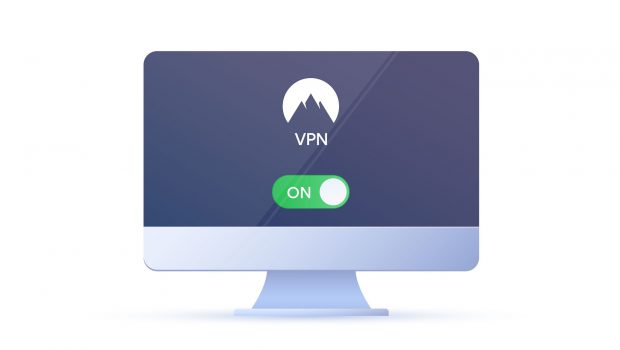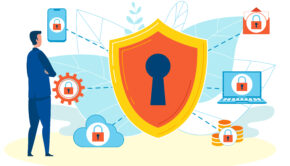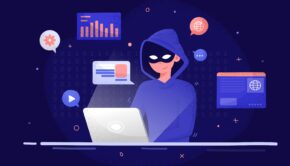Privacy Protection Benefits You Will Experience With A VPN
In today’s fast-paced digital world, the need to protect information is growing exponentially. Not only are scammers and thieves very much alive in the online space, but their methods have also become much more sophisticated. Not only that, but as communications giants, search engines, and internet service providers keep selling user information, privacy, both online and offline, seems to be getting scarcer by the day.
VPNs, or Virtual Private Networks, are a way for you to keep all your information safe and maintain your privacy. Through VPNs, data grabbing and profiling become more difficult as your connection with your VPN’s server is encrypted, and anyone trying to view your browsing habits would only see logs of your connections with the VPN.
What does a VPN do?
Essentially, a VPN creates an encrypted connection between one of its many servers and your device. VPN providers have dozens, if not hundreds of different servers located in different cities and countries around the world. When connected to the VPN, all data traveling between your device and the VPN server is encrypted.
Furthermore, the VPN also replaces your device’s IP address with that of the VPN server you’re connected to. Anyone snooping on your system would see your IP address as Los Angeles at one moment, and then Austria at another if you wish to change it. It would seem as if your device is located in the city or country the VPN server belongs to.
The combination of this encryption, the replacement of IP addresses, and the simulated physical location, would make it difficult for anyone trying to track your activity, maintaining your anonymity and privacy at all times. You could browse without any worry of being tracked, view content that is geographically restricted and could even bypass internet censorship if you happen to live in a country that enforces such measures. It also keeps your ISP from throttling your internet so you can enjoy browsing and streaming at full speed!
Of course, there are alternative and more aggressive, options to ensure the above. There are browsers that are advertised as “anonymous browsers” that do not track activity and usage. However, the issue with such measures is that your activity becomes restricted as they do not support the same number of plug-ins and therefore do not offer the same features that a browser like Chrome or Firefox could. They’re also rather slow, to be honest.
Is using a VPN really that necessary?
Considering that any reputable VPN would charge, at the very least, a nominal subscription fee, one of the most common questions is “do I really need a VPN?” Unfortunately, there is no clear cut answer to that. It essentially comes down to what activities you’re into when surfing the internet, and how concerned you are about anyone having access to that knowledge and your information.
However, when making the decision, it does help to consider the numerous advantages that VPNs offer, even to the most casual internet user. First and foremost, you can use VPNs to block your ISP from tracking your online activities and using your information to reap profits. Advertisers and data miners are willing to offer a lot of money to ISPs for subscriber information. In fact, one of the biggest money-makers for ISPs is the selling of subscriber information to such organizations. VPNs constantly protect your VoIP traffic from any unwanted eavesdroppers.
You can also use VPNs to avoid censorship and access geo-restricted content. This is a problem for most conservative-minded countries and having a VPN allows users to access content which their state bans. When you’re using a public hotspot, VPNs help protect the data on your system as well, and keep protective measures in place when you’re using online banking services or making purchases.
As you can see above, the advantages of a VPN would benefit every user of the internet, regardless of their walk of life. Even if you don’t absolutely need a VPN, you can’t argue it’s a bad idea to pay for a subscription for an added measure of security.
Considering the number of service providers available in the market, you’re bound to find a VPN plan with features you’re looking for (whether limited or broad) at a price you’re comfortable with. Some providers go as low as $3 per month and offer basic protection which casual users should be comfortable with. With the economic trend of selling personal information for money still going strong, VPNs will offer a lot for very little cost.
In the interest of being honest, there are “free” VPN service providers but you’re better off not using a VPN at all than subscribing to such a plan. One of the biggest reasons for users preferring such services is that they feel they don’t require a VPN enough to have to pay for one. What these users don’t understand is that these providers still need to make a profit for letting so many subscribers use their numerous servers without charge. This usually comes in the form of the free “VPN” selling your information for profit!
These providers have to pay for their digital infrastructure and operations and they do this by selling user information to the very advertising agencies and data miners that we’re trying to protect ourselves from. An alternative to this is where these providers carry out advertising themselves by browser ad injection, pop-up ads, and opening new browser windows to advertise different products and services.
Overall, free VPN services also have numerous performance issues. Connectivity and speed are just some of the factors that are affected and sometimes even normal browsing becomes cumbersome. The infrastructure is not as strong as that used by paid services (due to the costs involved) and in comparison, free VPNs are the clear cut loser.
What should I look for when choosing a VPN service provider?
As mentioned above, there are numerous paid VPN service providers in the market, giving consumers a wide range to choose from. The competition forces these service providers to stay true to their word, as any compromise means they lose customers a lot more easily due to the number of competitors.
This competition also has a massive effect on the price. Every service provider keeps undercutting costs so that they can attract more users, which means you’re bound to find a VPN based on your budget. However, with so many options to choose from, one can get a bit confused as to what they should get.
There are some benchmarks that will help you narrow your list. First and foremost, you must check that your VPN provides good speeds and you can verify the advertised speeds by viewing independent tests that have been carried out through reviews (a lot of tech websites do these regularly). The servers locations should be user selectable rather than being assigned automatically and the number of servers should range in the dozens at least. Also, try to check if there’s a limit on the number of servers that users can access.
As discussed above, the VPN should also have a no-logging policy with no data limits or throttling. There should be a variety of security and encryption features along with support for multiple simultaneous connections. Customer service is a plus point and if your VPN has multi-platform support, you’ll have advanced access to all your security features.
You’ll also need to look at your own specific needs and factor those into your decision. If you’re just looking to secure your home PC then a simple VPN with limited servers will even do the job. However, if, for example, you’re working in international journalism and need to access geographically restricted content from around the world, then you’ll need a VPN that not only offers a long list of servers from around the world, but also one that has beefed up security as you’ll be visiting unknown domains.
How can I trust a private entity with my sensitive Information?
While VPNs offer a range of far-reaching benefits to users, there still exists a risk that these service providers will do exactly what we don’t want our ISPs and telecoms providers to do. While VPNs will keep others from viewing your activity, they themselves have full access to your activity, credentials, personal information, and data. Surveys and research have confirmed that scamming is common, especially with mobile VPNs, and service providers lie at times about the range of services they provide.
While it’s difficult to screen each and every service provider, one indicator as to the trustworthiness of VPN is its log-keeping policies. Reputable and privacy-oriented VPNs will expressly state their no-logging policies on their web pages and informational material. Such VPNs do not store logs as they don’t want to be in a situation to divulge information to authorities if they’re served with a warrant or if a court of law issued a subpoena. If they don’t have the information, they can’t offer anything. Therefore, it would be prudent to check the terms of use and service of a VPN before you make your decision.
You shouldn’t waste your time with free VPNs as they’ve been found to be dishonest about their practices. Paid VPNs have the infrastructure to offer the services they advertise and are also more accountable due to the number of assurances they provide and the practices they implement. Using a paid VPN service will most certainly improve your chances of having found a trustworthy VPN provider.
Can’t I just use a proxy?
While VPNs and proxies are similar in the way they change a user’s IP address, it is the encryption and security factor which is missing from proxies. Unless your data is encrypted, any hacker or ISP can still intercept and freely analyze all your data, activity and information. For VPNs, strong encryption has become a staple and is the bare minimum required by consumers. Some VPNs go to the extent of implementing military-grade encryption to their services.
VPNs also have better performance metrics than proxies and the servers being used are of a much higher quality. There are data centers, personnel, specialized hardware, and an entire infrastructure in place for VPNs, which offer uninterrupted quality service. Proxies, on the other hand, are usually a one-man operation and the measures and equipment being employed leaves a lot to be desired. Even the lowliest VPN will outperform a proxy.
The ease of use offered by a VPN is also much more advanced than a proxy. You need to manually operate each individual proxy based on your needs and application. With a VPN you have overall coverage and encryption with the click of a button and more advanced VPNs will also let you customize the encryption and privacy levels.
Conclusion
In addition to being vast, accessible, and strange at times, the internet can also be a dangerous place. Your identity and private information are constantly at risk and remaining anonymous on such a public and open platform has become difficult. VPNs are an efficient measure to protect oneself from all these issues. Regardless of where you are, VPNs allow you to become anonymous and maintain your privacy, and allow you to access content which you shouldn’t be barred from in the first place.
What VPN you should go for depends completely on what your needs are and how much you’re willing to pay. Free VPNs should not be used under any circumstances whatsoever, and in making your decision, you should take all of the factors we’ve discussed today into account. Price should not be your only consideration, and ensuring the right amount of security, which is in line with your needs, should take precedence above all else.
Also, ensure that you’ve carefully read through the policies and practices of your selected VPN service provider before you commit to a paid plan. You should choose a provider that has a no-logging policy and does not restrict your usage with the number of servers you can access or the speed with which you can browse.
















